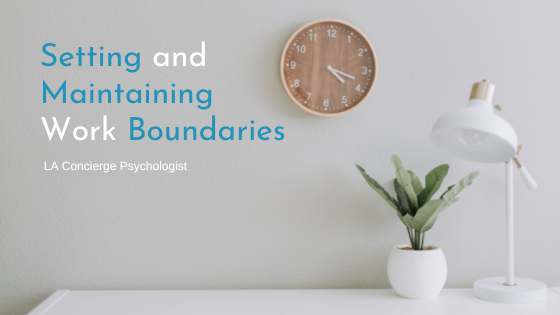21st-century physicians face many challenges, including exhausting working hours, increasing administrative demands, and diminishing face time with patients. The mental health ramifications of working in such conditions include alarmingly higher rates of anxiety, burnout, depression, and suicide among doctors versus the general population.[i]
Not surprisingly, the COVID-19 pandemic has only made things worse. SARS-CoV-2 is both highly transmissible and incredibly virulent. It can also present physicians with diagnostic challenges due to the variability of COVID-19 symptoms and the relatively long period of asymptomatic infection. The U.S. healthcare system was woefully unprepared for such a novel disease, and doctors are bearing the brunt of the consequences. This is leading to increasing rates of physician stress and burnout.
What causes physician burnout?
Physicians and other healthcare professionals affected by COVID are under immense pressure as they struggle to cope with care demand surges, equipment shortages, and personal infection risk. These stressors are a real and present danger to physician mental health. In a 2020 study of physicians caring for COVID-19 patients, more than half reported symptoms of depression, 45 percent had anxiety symptoms, and 34 percent had symptoms of insomnia.[ii]
Mental health declines among physicians come in a variety of forms. Some doctors, frustrated by the increasing bureaucracy of the medical world, have begun to question their profession’s morality. Others end up with PTSD after witnessing too many traumatic patient outcomes. While moral injury and PTSD cases are increasing, the most common mental health challenge among physicians during COVID-19 may be burnout.
Physicians caring for COVID-19 patients are subjected to tremendous emotional, physical, and mental stressors. They have very little time with each patient, yet they are expected to provide the best possible care. Most have so little free time that they live in a constant state of exhaustion, yet they are expected to stay up-to-date on diagnostic and treatment best practices for COVID-19, which are continually changing.
Doctors must also contend with the politicization of COVID-19 and the proliferation of misinformation via traditional and social media, making it harder for them to communicate with and relate to their patients. The emotional fatigue caused by this environment often leads to burnout, especially when coupled with the physical stress of spending long hours in PPE that is often hot and uncomfortable.
How to deal with physician burnout during COVID
If you are a doctor working with COVID-19 patients, you may be wondering how to avoid physician burnout. For the best results, I recommend you seek treatment with a licensed mental health professional. In the meantime, you may be able to improve your mental health and reenergize yourself by adhering to the following tips:
Establish firm boundaries
I have worked with many physicians who try to be everything to everyone, and they do so at their peril. Don’t fall into this trap. Instead, set boundaries that protect you and your mental health. For example, you might establish a boundary with your patients that you are only available via email during certain hours. Or you might set a limit with your boss regarding the maximum number of hours you are willing to work in a week.
Schedule time for healthy, restorative activities
For many professionals, if it’s not in their schedule, it doesn’t happen. Carve out time to engage in self-care. Respect that time like you would any other appointment. If your colleague invites you out to lunch on gym day, let them know that you’re not available (or reschedule for another day). Putting health-promoting activities on your calendar will prevent other activities from crowding out your schedule.
Explore mindfulness practices
If you’ve never tried yoga, meditation, or other mindfulness practices, this might be a good time. You might not think doing a five-minute meditation before work would do anything, but it could help you weather the day’s storm with greater calm. If you’re too anxious to sit still and meditate, try incorporating short walks into your schedule and spend that time focusing on your senses and your surroundings. Maybe even try incorporating some grounding techniques throughout your day.
Practice what you preach
You probably spend a fair amount of time lecturing your patients about the basics of good health, so take your own advice. Eat healthy food, avoid alcohol and tobacco, and prioritize sleep. The practical limitations of your job may sometimes get in the way, but anything you can do to take care of yourself will ultimately result in better care for your patients.
Lean on friends and family
The fear of contracting novel coronavirus and the social stigma facing healthcare workers are isolating many physicians right now. If you haven’t spoken to friends or family in a while, make an effort to connect with them through digital methods. If you can’t reach out to family or friends for some reason, consider connecting with a colleague who may have similar challenges and can empathize with you.
Pay attention to your triggers
If stumbling across COVID-related conspiracy theories online puts you into a rage, consider reducing the amount of time you spend on social media. That doesn’t mean you have to avoid online media entirely; just be mindful of the sources of information you’re exposing yourself to. You should also pay attention to situations that make you particularly depressed or anxious since they may have roots in past trauma or childhood experiences. A good therapist can help you uncover these experiences and connect the dots between your past and present difficulties.
If you’re a physician suffering from burnout, I can help
You’ve dedicated your career to looking out for your patients. Who is looking out for you? If you’re struggling with physician stress and burnout, Dr. Barajas can help. She’s skilled in working with professionals in high-stress, high-profile industries. Schedule a free 20 minute consultation call to see how she can help you better manage your stress.



